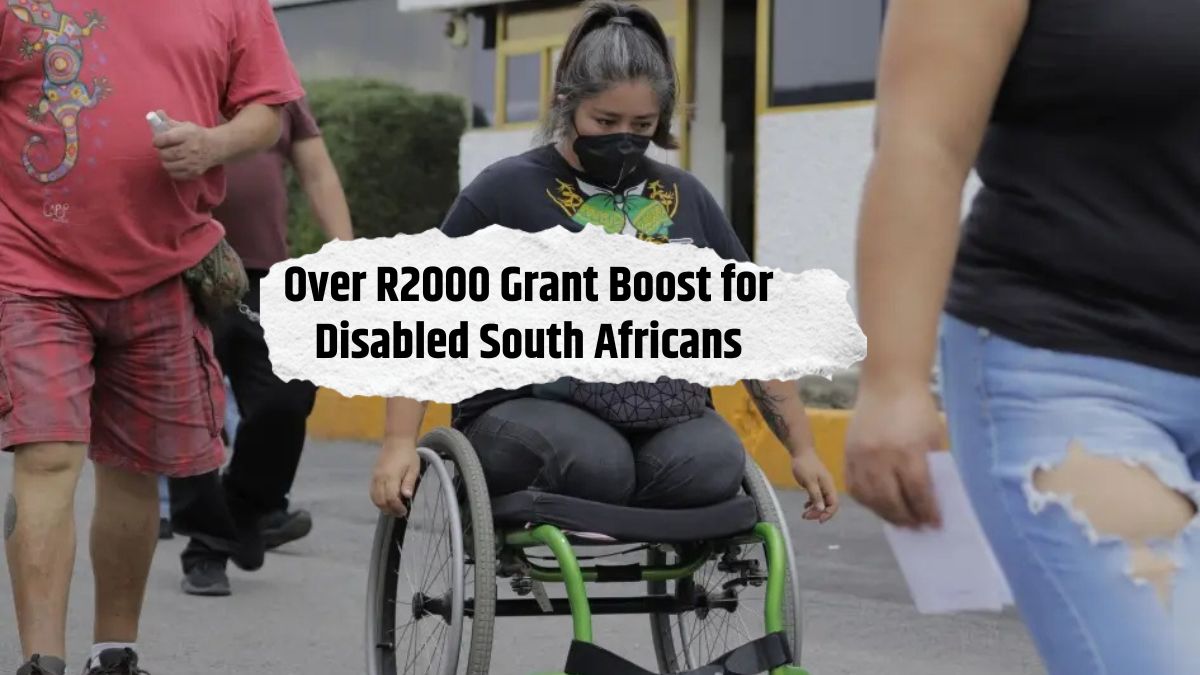The South African Social Security Agency (SASSA) has unveiled a major increase in the monthly disability grant, set to roll out in early 2025. The move is intended to offer enhanced financial support to individuals living with disabilities, ensuring they receive more than R2,000 per month. This adjustment comes as the cost of living continues to rise, placing additional pressure on South Africans who depend on state support to meet basic needs.
The increased grant is part of a broader effort to improve social protection, strengthen economic inclusion, and acknowledge the unique financial burdens carried by disabled citizens. With this change, SASSA aims to build a more equitable system and provide a meaningful boost to those most in need.
Understanding the Disability Grant Increase
The decision to raise the disability grant above R2,000 per month marks a significant step forward in SASSA’s welfare strategy. Historically, grant amounts have lagged behind inflation, leaving many disabled individuals struggling to afford even basic essentials. This latest move is a direct response to those challenges.
SASSA’s updated grant structure is designed to help recipients:
- Afford necessary healthcare and medical supplies
- Cover transportation expenses to clinics and support centers
- Manage daily living costs such as food, rent, and utilities
- Gain a degree of financial independence
The increase also reflects a growing recognition by the government that social grants are more than handouts—they are investments in human dignity and opportunity.
How Much Will Beneficiaries Receive?
Although exact monthly figures may vary depending on future inflation adjustments, the base grant amount will now exceed R2,000. This marks a substantial increase from the previous levels and will directly impact thousands of South Africans currently living on the edge of financial survival.
SASSA’s goal is not just to match inflation, but to help recipients achieve a better quality of life by ensuring they have the means to access healthcare, education, and transportation without falling into debt or further hardship.
Impact of the Grant Boost on Beneficiaries
For those receiving the disability grant, the increase means more than just a larger payment—it signals a greater commitment to their inclusion and empowerment. Many beneficiaries face long-term health conditions that require constant care, medication, and support. This extra financial support will significantly ease these burdens.
Key areas of improvement expected from the grant boost:
- Improved access to medical treatment and therapies
- Ability to purchase assistive devices, such as mobility aids
- Enhanced nutrition and living standards
- Reduction in financial stress and dependency
- Greater social participation and freedom of movement
For many, the new grant is not simply financial—it’s a path toward dignity and self-reliance.
How SASSA Plans to Implement the Grant Increase
SASSA has developed a structured, multi-phase rollout plan to ensure the grant increase is efficiently implemented across the country. The plan emphasizes communication, financial education, and support to help both new and existing recipients adapt smoothly to the changes.
Rollout Phases:
| Phase | Action | Timeline | Target Group | Support Measures |
|---|---|---|---|---|
| Phase 1 | Initial Notification | Q1 2025 | All current beneficiaries | Community briefings and updates |
| Phase 2 | Grant Disbursement | Q2 2025 | Eligible individuals | Financial planning workshops |
| Phase 3 | Monitoring and Feedback | Ongoing | All recipients | Dedicated SASSA support hotlines |
| Phase 4 | Post-Rollout Evaluation | End of 2025 | SASSA administration | Policy feedback and grant reviews |
SASSA is also partnering with local NGOs and healthcare providers to ensure beneficiaries have access to complementary services, such as transportation to clinics or help completing paperwork.
Who Qualifies for the Disability Grant?
Eligibility for the disability grant remains consistent, focusing on individuals with permanent or temporary disabilities that prevent them from working or earning a sustainable income.
To qualify, applicants must:
- Be a South African citizen or permanent resident
- Be between the ages of 18 and 59
- Have a certified disability that prevents full-time employment
- Meet income and asset thresholds as determined by SASSA
- Undergo a medical assessment by a designated health professional
Applicants must also not be receiving another conflicting social grant unless applying for a temporary disability grant due to medical circumstances.
Required Documents for Application
Before applying for the grant, make sure to gather the following:
- Valid South African ID
- Medical assessment report
- Proof of residence
- Banking details for grant payment
- Proof of income or unemployment
- Any additional supporting documents requested by SASSA
Applications can be made in person at a SASSA office or online via the official SASSA services portal.
Beyond the Grant: Additional Support for People with Disabilities
In addition to the financial grant, South Africans living with disabilities may qualify for further government assistance and services. These programs are designed to promote independent living and inclusion.
Examples of available support:
- Free access to public healthcare services
- Subsidized assistive devices (wheelchairs, hearing aids, etc.)
- Community rehabilitation services
- Skills development and training programs
- Non-profit and municipal transport subsidies
- Access to disability advocacy organizations
Beneficiaries are encouraged to contact local social workers or disability centers to learn more about how these programs can complement the SASSA grant.
Why This Grant Increase Matters
This 2025 grant increase is not just about financial relief—it represents a shift in how South Africa values and empowers people with disabilities. By increasing the grant, the government acknowledges the additional financial challenges disabled individuals face and takes steps toward closing the economic inclusion gap.
This effort:
- Strengthens the social safety net
- Reduces inequality
- Encourages greater civic and economic participation
- Reinforces human dignity for all
